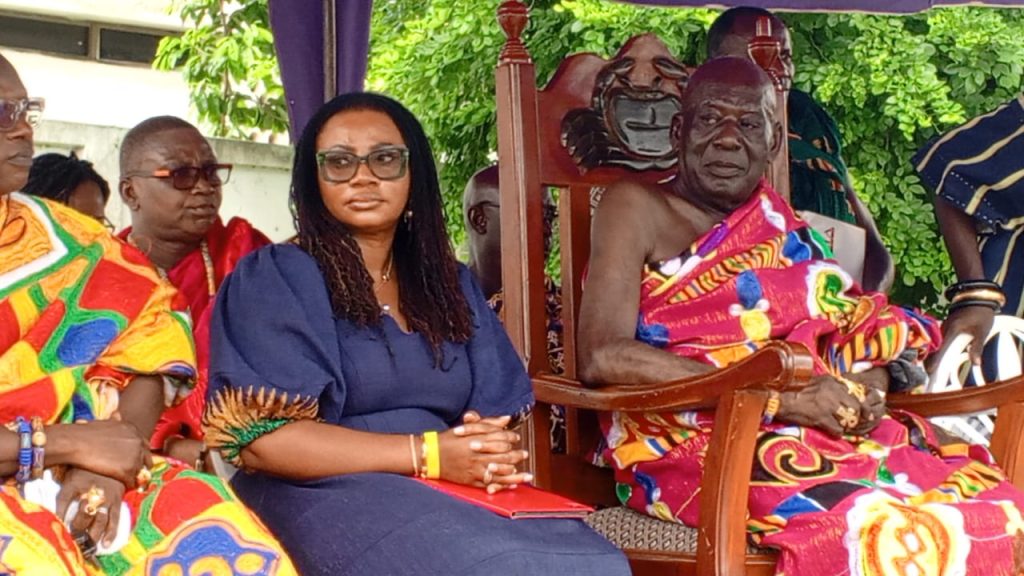By Isaac Arkoh, GNA
Cape Coast, May 15, GNA – Mrs Charlotte Osei, former Chairperson of Electoral Commission of Ghana, has been appointed Chairperson of an eight-member 2024 Oguaa Fetu Afahye Planning Committee by the Oguaa Traditional Council
The launch coincided with the unveiling of the 60th anniversary logo, depicting the symbol of Oguaa which is the crab as a strong icon of authority.
Mrs Osei who traced her roots from Essuekyir-Ahenfie, near Abura, was officially introduced at the launch of the historic festival on Tuesday, sending a strong signal of the start of a unique festivity.
Mrs Osei, also the UN International Elections Commissioner, succeeded Mr Perry Mensah, who steered the affairs of the Committee for half a decade with great dexterity.
The event was laced-up with stout of cultural displays by the Asafo companies, Twereampon and the Centre for National Culture cultural ensembles.
The festival to be held on the theme: “celebrating the city of the first, our people and our future,” is an annual feature commemorating a purification rite which saved the land from a plague to show gratitude to the 77 gods of Oguaa.

Outlining plans for the celebrations, Mrs Osei described her elevation as an “honour of a lifetime,” adding: “I’m an indigene of Cape Coast by blood and it’s an honour to serve my people.”
“Afahye is not only Ghana’s first festival, but our biggest festival. And the 60th edition must be the biggest of the big to the world,” she noted, adding that the essence of the festival captured the rich history of the people to position the ancient city for accelerated development.
She said the festival reflected a future that must be built by all well-meaning people regardless of location, ethnic group, clan and social status, saying “Oguaa is for all of us.”
“We own this land and no one is going to build it for us, except ourselves. If Cape Coast has to be built or lifted, it must start from us.
“The popular misconceptions that: “Oguaa wonnye” meaning Oguaa people are not good must be laid to rest.”
Such labelling, she indicated, had kept many industrious indigenes away from the land which did not augur well for the collective development of the city.
“We are a good people with rich history, and too many achievements to call ourselves a bad people. Ghana was birthed in Oguaa, and without Oguaa Ghana would not have been independent.
“Our collective past must be the building block for our future because we have the first of the following; Supreme Court in the Gold Coast, Senior High School (SHS), female SHS, elementary school, football team, Methodist Church, Catholic Church, first printing press and newspaper,” she noted.
Mrs Osei bemoaned the non-availability of jobs for the teeming unemployed youth and asked the citizenry to bury their differences to collectively spearhead the development of the academic city.
Osabarimba Kwesi Atta II, Omanhen of Oguaa Traditional Area, stressed the urgent need to enhance performance in basic schools in the Metropolis to enable the youth to pursue higher education.
He described the quality of basic education in the metropolis as poor, and stressed the need for stakeholders to intervene to improve on the situation.
Mrs Justina Marigold Assan, Central Regional Minister, spoke highly of Osabarimba’s time consciousness and called on the citizenry to show commitment to time management to facilitate national development.
She stressed that time consciousness was one of the cardinal attitudinal change required in Ghana to drive national progress and growth.
GNA